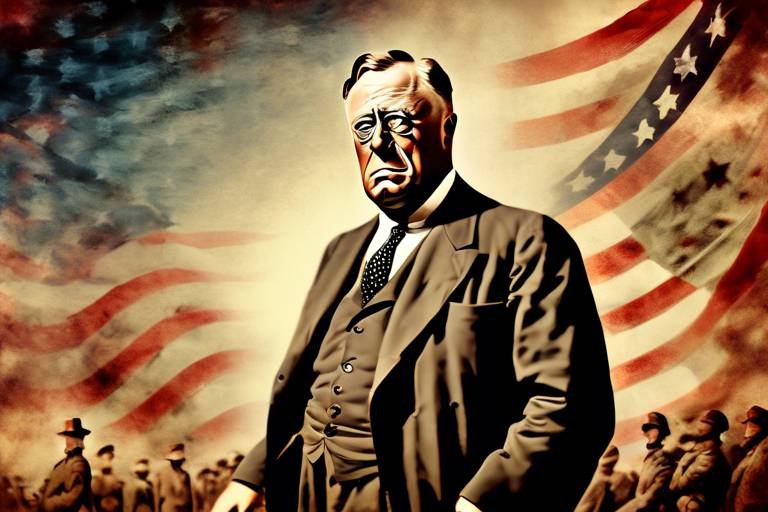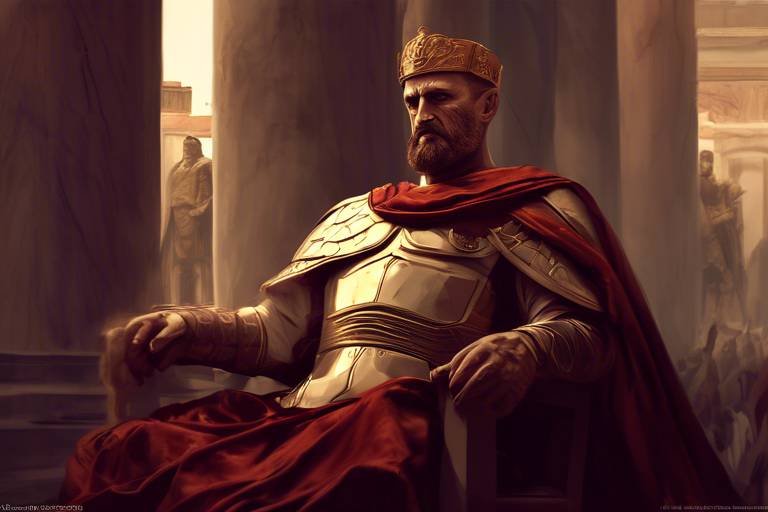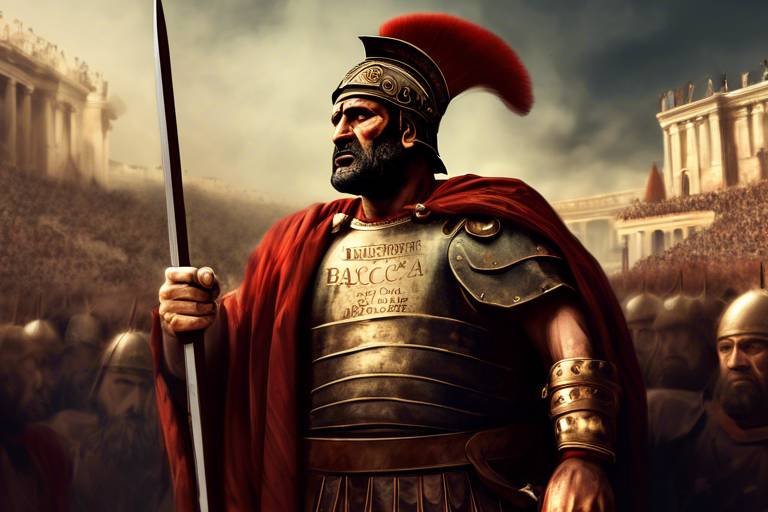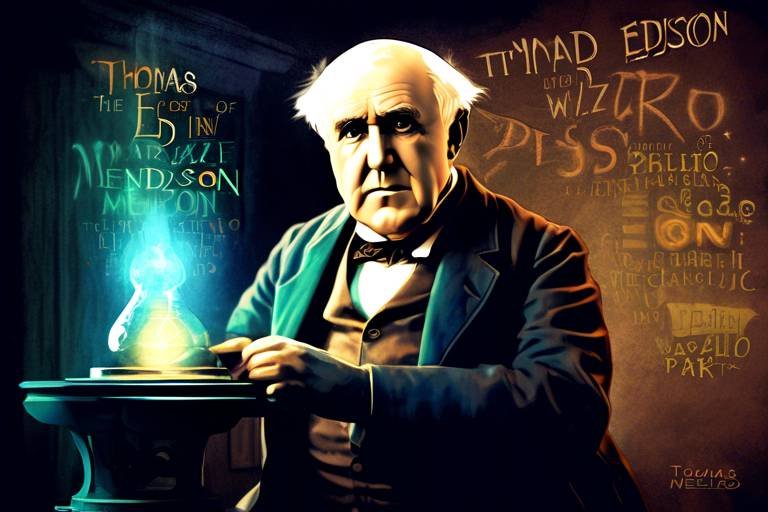Thomas Paine: The Revolutionary Thinker
Thomas Paine, the Revolutionary Thinker, stands as a pivotal figure in the history of both the American and French Revolutions. His impactful writings, notably Common Sense and The Rights of Man, have left an indelible mark on the course of history, challenging the status quo and advocating for profound societal change.

Common Sense
Exploring the life and ideas of Thomas Paine, a key figure in the American and French Revolutions, known for his influential writings like and The Rights of Man.
Delving into Thomas Paine's upbringing, education, and early experiences that shaped his revolutionary thinking and commitment to advocating for democratic principles.
Analyzing the significance of Paine's pamphlet in galvanizing public support for American independence and challenging the authority of the British monarchy.
Examining the philosophical sources that inspired Paine's ideas on natural rights, political representation, and the role of government in society.
Discussing Paine's involvement in the French Revolution and his support for radical reforms, as reflected in his work The Rights of Man and advocacy for universal suffrage.
Detailing Paine's imprisonment in France during the Reign of Terror and subsequent exile, highlighting the challenges he faced for his outspoken views on liberty and equality.
Evaluating Thomas Paine's enduring legacy as a champion of human rights and democracy, and the impact of his writings on subsequent revolutions and political movements worldwide.
Exploring how Paine's ideas on democracy, social justice, and individual freedoms continue to resonate in modern political discourse and activism.
Reflecting on the later years of Thomas Paine's life, his declining reputation in the United States, and the circumstances surrounding his death in 1809.
is a revolutionary pamphlet written by Thomas Paine in 1776. It played a pivotal role in shaping public opinion and mobilizing support for American independence from British colonial rule. Paine's clear and persuasive arguments in challenged the legitimacy of monarchy and advocated for the principles of republicanism and self-governance. By appealing to the common people with straightforward language and powerful reasoning, Paine ignited a spark of rebellion that ultimately led to the birth of a new nation founded on the ideals of liberty and democracy.

and
Exploring the life and ideas of Thomas Paine, a key figure in the American and French Revolutions, known for his influential writings like Common Sense and The Rights of Man.
Delving into Thomas Paine's upbringing, education, and early experiences that shaped his revolutionary thinking and commitment to advocating for democratic principles.
Analyzing the significance of Paine's pamphlet Common Sense in galvanizing public support for American independence and challenging the authority of the British monarchy.
Examining the philosophical sources that inspired Paine's ideas on natural rights, political representation, and the role of government in society.
Discussing Paine's involvement in the French Revolution and his support for radical reforms, as reflected in his work The Rights of Man and advocacy for universal suffrage.
Detailing Paine's imprisonment in France during the Reign of Terror and subsequent exile, highlighting the challenges he faced for his outspoken views on liberty and equality.
Evaluating Thomas Paine's enduring legacy as a champion of human rights and democracy, and the impact of his writings on subsequent revolutions and political movements worldwide.
Exploring how Paine's ideas on democracy, social justice, and individual freedoms continue to resonate in modern political discourse and activism.
Reflecting on the later years of Thomas Paine's life, his declining reputation in the United States, and the circumstances surrounding his death in 1809.
Stay tuned for answers to commonly asked questions about Thomas Paine's life, ideas, and impact.

The Rights of Man.
Exploring the life and ideas of Thomas Paine, a key figure in the American and French Revolutions, known for his influential writings like Common Sense and
Delving into Thomas Paine's upbringing, education, and early experiences that shaped his revolutionary thinking and commitment to advocating for democratic principles.
Analyzing the significance of Paine's pamphlet Common Sense in galvanizing public support for American independence and challenging the authority of the British monarchy.
Examining the philosophical sources that inspired Paine's ideas on natural rights, political representation, and the role of government in society.
Discussing Paine's involvement in the French Revolution and his support for radical reforms, as reflected in his work The Rights of Man and advocacy for universal suffrage.
Detailing Paine's imprisonment in France during the Reign of Terror and subsequent exile, highlighting the challenges he faced for his outspoken views on liberty and equality.
Evaluating Thomas Paine's enduring legacy as a champion of human rights and democracy, and the impact of his writings on subsequent revolutions and political movements worldwide.
Exploring how Paine's ideas on democracy, social justice, and individual freedoms continue to resonate in modern political discourse and activism.
Reflecting on the later years of Thomas Paine's life, his declining reputation in the United States, and the circumstances surrounding his death in 1809.
The Rights of Man is a seminal work by Thomas Paine that articulates the inherent rights and freedoms of individuals in society. In this influential piece, Paine passionately argues for the equality of all citizens, the importance of representative government, and the necessity of protecting human rights. Through eloquent prose and compelling reasoning, Paine advocates for the empowerment of the common people and the establishment of a just and fair society based on democratic principles.

Exploring the life and ideas of Thomas Paine, a key figure in the American and French Revolutions, known for his influential writings like Common Sense and The Rights of Man.
Delving into Thomas Paine's upbringing, education, and early experiences that shaped his revolutionary thinking and commitment to advocating for democratic principles.
Analyzing the significance of Paine's pamphlet Common Sense in galvanizing public support for American independence and challenging the authority of the British monarchy.
Examining the philosophical sources that inspired Paine's ideas on natural rights, political representation, and the role of government in society.
Discussing Paine's involvement in the French Revolution and his support for radical reforms, as reflected in his work The Rights of Man and advocacy for universal suffrage.
Detailing Paine's imprisonment in France during the Reign of Terror and subsequent exile, highlighting the challenges he faced for his outspoken views on liberty and equality.
Evaluating Thomas Paine's enduring legacy as a champion of human rights and democracy, and the impact of his writings on subsequent revolutions and political movements worldwide.
Exploring how Paine's ideas on democracy, social justice, and individual freedoms continue to resonate in modern political discourse and activism.
Reflecting on the later years of Thomas Paine's life, his declining reputation in the United States, and the circumstances surrounding his death in 1809.

Early Life and Background
Exploring the life and ideas of Thomas Paine, a key figure in the American and French Revolutions, known for his influential writings like Common Sense and The Rights of Man.
Delving into Thomas Paine's upbringing, education, and early experiences that shaped his revolutionary thinking and commitment to advocating for democratic principles.
Thomas Paine was born in Thetford, England, in 1737. His humble beginnings and limited formal education did not hinder his intellectual curiosity and passion for social justice. Paine worked various jobs, from corset maker to excise officer, before embarking on a journey that would make him a household name in revolutionary circles.
His time in London exposed him to the political ferment of the era, where discussions on liberty and equality fueled his desire to challenge oppressive systems. Paine's move to America in 1774 marked a turning point in his life, as he found himself in the midst of a burgeoning revolution against British colonial rule.
Despite facing initial struggles in the New World, Paine's encounters with influential figures like Benjamin Franklin and his growing involvement in revolutionary activities ignited his fervor for advocating for the rights of the common people.
It was during this period that Paine penned his seminal work, Common Sense, a pamphlet that would galvanize support for American independence and lay the groundwork for a nation founded on democratic principles.
His early experiences and exposure to the injustices of society laid the foundation for Paine's unwavering commitment to challenging authority and championing the rights of individuals against oppressive regimes.

Impact of
Thomas Paine's pamphlet Common Sense had a monumental impact on the American Revolution, igniting a spark of rebellion that spread like wildfire among the colonists. With its clear and persuasive language, Paine's work challenged the very foundation of British rule and monarchy, urging the colonists to break free from the oppressive chains of tyranny. By appealing to the common people and advocating for independence, Common Sense played a crucial role in shifting public opinion towards the revolutionary cause.

Common Sense
Exploring the life and ideas of Thomas Paine, a key figure in the American and French Revolutions, known for his influential writings like and The Rights of Man.
Delving into Thomas Paine's upbringing, education, and early experiences that shaped his revolutionary thinking and commitment to advocating for democratic principles.
Analyzing the significance of Paine's pamphlet in galvanizing public support for American independence and challenging the authority of the British monarchy.
Examining the philosophical sources that inspired Paine's ideas on natural rights, political representation, and the role of government in society.
Discussing Paine's involvement in the French Revolution and his support for radical reforms, as reflected in his work The Rights of Man and advocacy for universal suffrage.
Detailing Paine's imprisonment in France during the Reign of Terror and subsequent exile, highlighting the challenges he faced for his outspoken views on liberty and equality.
Evaluating Thomas Paine's enduring legacy as a champion of human rights and democracy, and the impact of his writings on subsequent revolutions and political movements worldwide.
Exploring how Paine's ideas on democracy, social justice, and individual freedoms continue to resonate in modern political discourse and activism.
Reflecting on the later years of Thomas Paine's life, his declining reputation in the United States, and the circumstances surrounding his death in 1809.
Thomas Paine's pamphlet was a groundbreaking work that played a pivotal role in shaping the American Revolution. Published in 1776, passionately argued for independence from British rule, appealing to the common people with its straightforward language and compelling arguments. Paine's pamphlet spread like wildfire, igniting a fervor for freedom and self-governance among the American colonists. By challenging the legitimacy of monarchy and advocating for republican principles, laid the foundation for a new nation built on the ideals of liberty and equality.
- Q: What impact did Thomas Paine's writings have on the American Revolution?
- A: Thomas Paine's writings, particularly , inspired and mobilized many colonists to support the cause of independence, providing intellectual ammunition for the revolutionaries.
- Q: How did Thomas Paine's views on democracy influence later political movements?
- A: Paine's advocacy for democracy and individual rights served as a blueprint for future revolutions and movements worldwide, shaping the course of modern political thought.
- Q: Why was Thomas Paine imprisoned in France?
- A: Paine was imprisoned in France during the Reign of Terror due to his opposition to the execution of King Louis XVI and his criticism of the radical turn of the revolution.

Thomas Paine's role in the French Revolution was pivotal in shaping the course of history during a tumultuous period in Europe. His involvement in advocating for radical reforms and his unwavering support for universal suffrage marked him as a revolutionary thinker ahead of his time. Paine's work, particularly his publication The Rights of Man, served as a manifesto for challenging oppressive regimes and promoting the principles of liberty and equality.

Common Sense
Exploring the life and ideas of Thomas Paine, a key figure in the American and French Revolutions, known for his influential writings like and The Rights of Man.
Delving into Thomas Paine's upbringing, education, and early experiences that shaped his revolutionary thinking and commitment to advocating for democratic principles.
Analyzing the significance of Paine's pamphlet in galvanizing public support for American independence and challenging the authority of the British monarchy.
Examining the philosophical sources that inspired Paine's ideas on natural rights, political representation, and the role of government in society.
Discussing Paine's involvement in the French Revolution and his support for radical reforms, as reflected in his work The Rights of Man and advocacy for universal suffrage.
Detailing Paine's imprisonment in France during the Reign of Terror and subsequent exile, highlighting the challenges he faced for his outspoken views on liberty and equality.
Evaluating Thomas Paine's enduring legacy as a champion of human rights and democracy, and the impact of his writings on subsequent revolutions and political movements worldwide.
Exploring how Paine's ideas on democracy, social justice, and individual freedoms continue to resonate in modern political discourse and activism.
Reflecting on the later years of Thomas Paine's life, his declining reputation in the United States, and the circumstances surrounding his death in 1809.
was a groundbreaking pamphlet written by Thomas Paine in 1776, advocating for American independence from British rule. It presented compelling arguments in clear and accessible language, resonating with the common people and stirring a sense of patriotism and revolutionary spirit. Paine's played a pivotal role in mobilizing public opinion and garnering support for the American Revolution, challenging the legitimacy of monarchical rule and calling for a democratic government based on the consent of the governed.
- What impact did Thomas Paine's writings have on the American Revolution?
- How did Thomas Paine's ideas influence the French Revolution?
- Why was Thomas Paine imprisoned during the Reign of Terror in France?
- What is Thomas Paine's legacy in modern political discourse?

in galvanizing public support for American independence and challenging the authority of the British monarchy.
Thomas Paine's pamphlet Common Sense played a pivotal role in galvanizing public support for American independence and challenging the authority of the British monarchy. In this influential work, Paine eloquently articulated the grievances of the American colonies and made a compelling case for breaking away from British rule. By appealing to the common sense of the people and emphasizing the inherent rights of individuals to self-governance, Paine ignited a sense of revolutionary fervor that spread like wildfire.
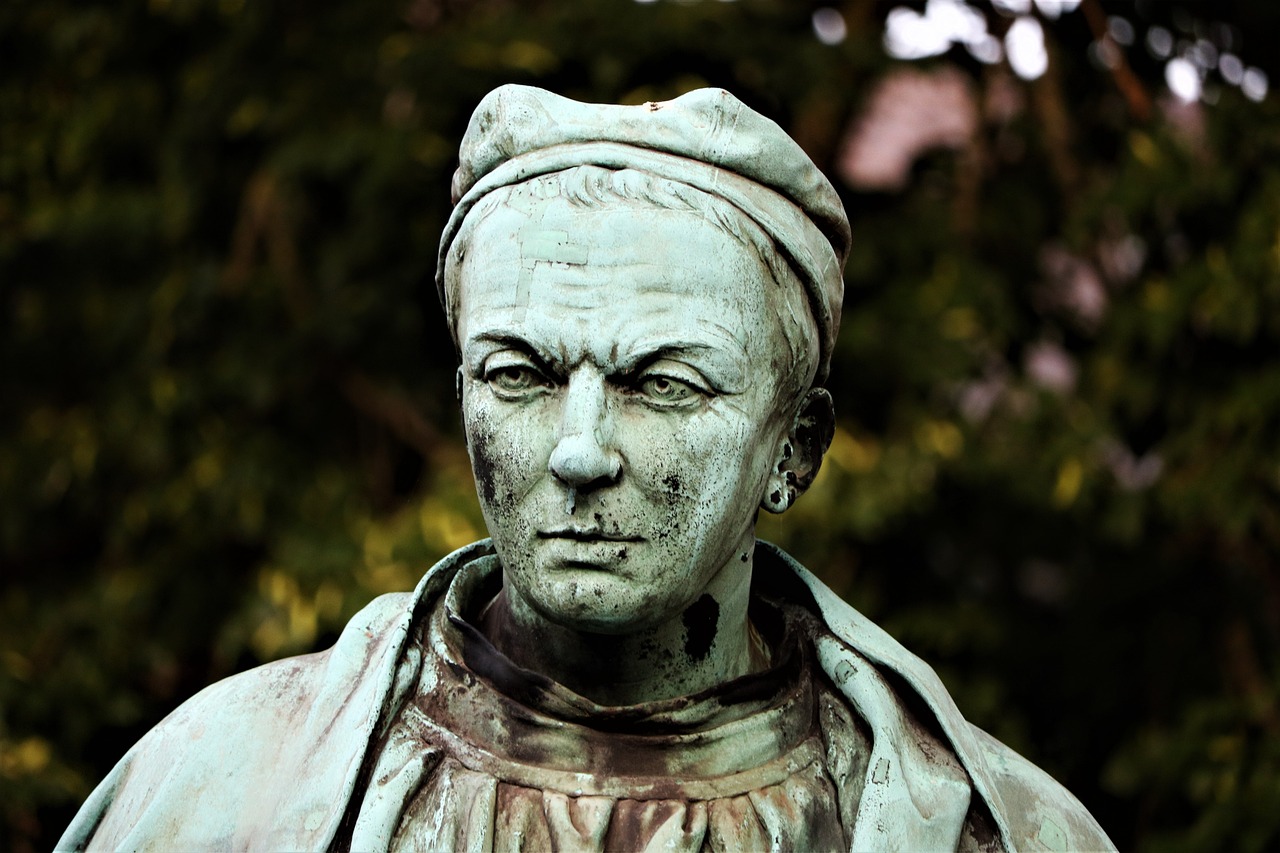
Philosophical Influences
Exploring the life and ideas of Thomas Paine, a key figure in the American and French Revolutions, known for his influential writings like Common Sense and The Rights of Man.
Delving into Thomas Paine's upbringing, education, and early experiences that shaped his revolutionary thinking and commitment to advocating for democratic principles.
Analyzing the significance of Paine's pamphlet Common Sense in galvanizing public support for American independence and challenging the authority of the British monarchy.
Thomas Paine's ideas were heavily influenced by various philosophical sources that shaped his views on natural rights, political representation, and the role of government in society. One of the key influences on Paine was the Enlightenment philosophy, particularly the works of thinkers like John Locke and Jean-Jacques Rousseau. These thinkers emphasized the importance of individual rights, social contracts, and the consent of the governed, which Paine incorporated into his own revolutionary writings. Additionally, Paine drew inspiration from the concept of universal human rights, advocating for the inherent dignity and equality of all individuals regardless of social status or background.
Discussing Paine's involvement in the French Revolution and his support for radical reforms, as reflected in his work The Rights of Man and advocacy for universal suffrage.
Detailing Paine's imprisonment in France during the Reign of Terror and subsequent exile, highlighting the challenges he faced for his outspoken views on liberty and equality.
Evaluating Thomas Paine's enduring legacy as a champion of human rights and democracy, and the impact of his writings on subsequent revolutions and political movements worldwide.
Exploring how Paine's ideas on democracy, social justice, and individual freedoms continue to resonate in modern political discourse and activism.
Reflecting on the later years of Thomas Paine's life, his declining reputation in the United States, and the circumstances surrounding his death in 1809.

Role in the French Revolution
Thomas Paine played a significant role in the French Revolution, aligning himself with the revolutionary fervor sweeping across France in the late 18th century. His involvement in the French Revolution stemmed from his staunch belief in the principles of liberty, equality, and fraternity, which he had previously espoused in his writings on the American Revolution. Paine's work, particularly his book The Rights of Man, resonated with the revolutionary spirit in France, where he was hailed as a champion of the people's rights and a vocal critic of oppressive monarchies.
During the French Revolution, Paine actively participated in the political discourse and advocated for radical reforms aimed at dismantling the feudal system and establishing a more egalitarian society. His writings, including The Rights of Man, served as a manifesto for the revolutionary forces in France, calling for the establishment of a democratic government based on the principles of popular sovereignty and individual freedoms.
Paine's advocacy for universal suffrage and the abolition of aristocratic privileges in France reflected his commitment to creating a more just and equitable society. His unwavering support for the French Revolution, despite the tumultuous events unfolding during the Reign of Terror, demonstrated his dedication to the ideals of democracy and social justice.
However, Paine's active involvement in the French Revolution also had its consequences. He was eventually arrested and imprisoned in France during the Reign of Terror, facing accusations of being an enemy of the state. Despite enduring harsh conditions and the threat of execution, Paine remained steadfast in his beliefs and continued to defend the principles of liberty and equality.
Following his release from prison, Paine was forced into exile, facing hostility and persecution for his revolutionary activities. Despite the challenges and dangers he encountered, Paine remained committed to his ideals and continued to advocate for democratic reforms both in France and beyond.

The Rights of Man
Exploring the life and ideas of Thomas Paine, a key figure in the American and French Revolutions, known for his influential writings like Common Sense and .
Delving into Thomas Paine's upbringing, education, and early experiences that shaped his revolutionary thinking and commitment to advocating for democratic principles.
Analyzing the significance of Paine's pamphlet Common Sense in galvanizing public support for American independence and challenging the authority of the British monarchy.
Examining the philosophical sources that inspired Paine's ideas on natural rights, political representation, and the role of government in society.
Discussing Paine's involvement in the French Revolution and his support for radical reforms, as reflected in his work and advocacy for universal suffrage.
Detailing Paine's imprisonment in France during the Reign of Terror and subsequent exile, highlighting the challenges he faced for his outspoken views on liberty and equality.
Evaluating Thomas Paine's enduring legacy as a champion of human rights and democracy, and the impact of his writings on subsequent revolutions and political movements worldwide.
Exploring how Paine's ideas on democracy, social justice, and individual freedoms continue to resonate in modern political discourse and activism.
Reflecting on the later years of Thomas Paine's life, his declining reputation in the United States, and the circumstances surrounding his death in 1809.
Thomas Paine's work encapsulates his fervent belief in the inherent rights of individuals to freedom and equality. In this seminal piece, Paine eloquently argues for the establishment of a society based on principles of justice and fairness, where every person is entitled to basic human rights without discrimination or oppression. By advocating for the rights of all individuals, Paine challenges the existing social and political structures that perpetuate inequality and tyranny, paving the way for a more just and equitable society.
Q: What impact did Thomas Paine have on the American Revolution?
A: Thomas Paine's writings, particularly "Common Sense," played a crucial role in inspiring and mobilizing public support for American independence, galvanizing the colonists to break free from British rule.
Q: How did Thomas Paine contribute to the French Revolution?
A: Paine's involvement in the French Revolution, as seen in his work "The Rights of Man," advocated for radical reforms and universal suffrage, influencing the course of the revolution towards democratic ideals.
Q: Why is Thomas Paine considered a champion of human rights?
A: Thomas Paine's unwavering commitment to principles of liberty, equality, and individual rights in his writings and activism solidifies his legacy as a champion of human rights, inspiring generations to fight for justice and freedom.

and advocacy for universal suffrage.
Thomas Paine's advocacy for universal suffrage was a central tenet of his political philosophy, emphasizing the importance of equal voting rights for all citizens regardless of their social status or wealth. Paine believed that political power should ultimately reside in the hands of the people, and that every individual should have the right to participate in the democratic process through voting. His support for universal suffrage was deeply rooted in his belief in the inherent equality of all individuals and the idea that every voice should be heard in shaping the government and policies that affect society as a whole.

Imprisonment and Exile
During the tumultuous period of the French Revolution, Thomas Paine found himself embroiled in controversy and danger, leading to his imprisonment and subsequent exile. Paine's unwavering commitment to his principles of liberty and equality placed him at odds with the authorities of the time, resulting in severe repercussions.
Imprisoned in France during the Reign of Terror, Paine faced harsh conditions and uncertainty about his fate. Despite the challenging circumstances, he remained steadfast in his beliefs, refusing to compromise his ideals even in the face of adversity.
Following his release from prison, Paine was forced into exile, fleeing to other European countries to escape further persecution. His exile marked a difficult period in his life, as he grappled with the consequences of his outspoken advocacy for radical political reform.
Throughout his imprisonment and exile, Paine's resilience and dedication to his principles never wavered. Despite the personal hardships he endured, he continued to champion the cause of liberty and democracy, inspiring future generations with his unwavering commitment to justice and equality.

Legacy and Influence
Thomas Paine's legacy as a revolutionary thinker continues to reverberate through history, shaping the course of democratic movements and inspiring generations to challenge oppressive systems. His unwavering commitment to human rights and advocacy for democracy have left an indelible mark on the world.
Paine's influential writings, such as Common Sense and The Rights of Man, have served as beacons of enlightenment, igniting the flames of revolution and stirring the hearts of individuals seeking liberation from tyranny. Through his eloquent prose and impassioned pleas for justice, Paine galvanized people to question authority and fight for their inherent rights.
One of the key aspects of Paine's legacy is his role in advocating for the fundamental principles of democracy, including the rights of the individual, the importance of civic engagement, and the need for government accountability. His ideas on the inherent equality of all individuals and the necessity of representative government have endured the test of time, resonating with those who strive for a more just and equitable society.
Moreover, Paine's fearless stance against oppression and his unwavering dedication to the cause of liberty have inspired countless individuals to stand up against injustice and tyranny. His words serve as a reminder that one person's voice can spark a revolution and that the fight for freedom is a noble endeavor worth pursuing.
As we reflect on Thomas Paine's legacy and influence, we are reminded of the power of ideas to shape the course of history and the enduring impact of individuals who dare to challenge the status quo. Paine's legacy serves as a testament to the enduring power of courage, conviction, and the relentless pursuit of a more just and equitable world.

Contemporary Relevance
Thomas Paine's ideas on democracy, social justice, and individual freedoms hold significant contemporary relevance in today's political landscape. His advocacy for equal rights, government accountability, and the empowerment of the common people continues to inspire movements worldwide. Paine's emphasis on the importance of citizen participation in governance and the protection of individual liberties resonates with ongoing struggles for equality and justice.

Final Years and Death
Exploring the life and ideas of Thomas Paine, a key figure in the American and French Revolutions, known for his influential writings like Common Sense and The Rights of Man.
Delving into Thomas Paine's upbringing, education, and early experiences that shaped his revolutionary thinking and commitment to advocating for democratic principles.
Analyzing the significance of Paine's pamphlet Common Sense in galvanizing public support for American independence and challenging the authority of the British monarchy.
Examining the philosophical sources that inspired Paine's ideas on natural rights, political representation, and the role of government in society.
Discussing Paine's involvement in the French Revolution and his support for radical reforms, as reflected in his work The Rights of Man and advocacy for universal suffrage.
Detailing Paine's imprisonment in France during the Reign of Terror and subsequent exile, highlighting the challenges he faced for his outspoken views on liberty and equality.
Evaluating Thomas Paine's enduring legacy as a champion of human rights and democracy, and the impact of his writings on subsequent revolutions and political movements worldwide.
Exploring how Paine's ideas on democracy, social justice, and individual freedoms continue to resonate in modern political discourse and activism.
Reflecting on the later years of Thomas Paine's life, his declining reputation in the United States, and the circumstances surrounding his death in 1809.
Frequently Asked Questions
- Who was Thomas Paine?
Thomas Paine was a revolutionary thinker and writer who played a significant role in both the American and French Revolutions. He is best known for his influential works such as "Common Sense" and "The Rights of Man."
- What was the impact of "Common Sense"?
"Common Sense" was a pamphlet written by Thomas Paine that played a crucial role in rallying public support for American independence from British rule. It challenged the authority of the British monarchy and helped galvanize the revolutionary spirit among the colonists.
- What were Thomas Paine's philosophical influences?
Thomas Paine was influenced by various philosophical ideas on natural rights, political representation, and the role of government in society. His writings reflect Enlightenment ideals and a deep commitment to advocating for democratic principles.
- How did Thomas Paine contribute to the French Revolution?
Thomas Paine actively participated in the French Revolution by supporting radical reforms and advocating for universal suffrage. His work "The Rights of Man" articulated his vision for a just and egalitarian society.
- What is Thomas Paine's legacy?
Thomas Paine's legacy lies in his advocacy for human rights, democracy, and individual freedoms. His writings have had a lasting impact on subsequent revolutions and political movements worldwide, inspiring generations of activists and thinkers.



